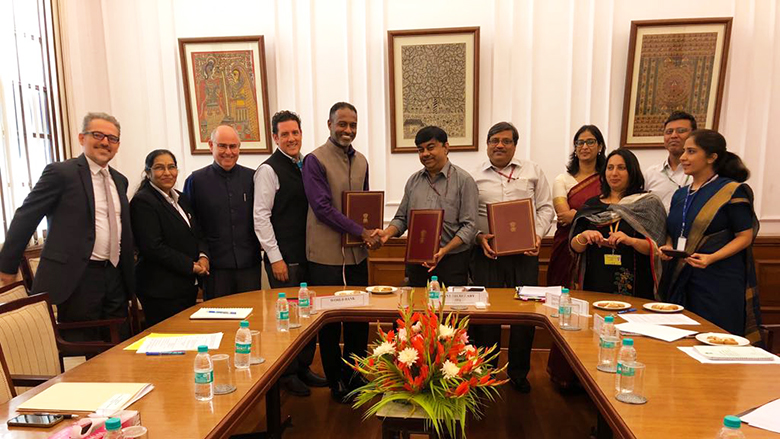India signs loan agreement with World Bank for US$ 125 million for “Innovate in India for Inclusiveness Project”
Government of India and World Bank Sign Agreement to Invest in Technology that Addresses India’s Public Health Priorities. The $125 million (833 crore INR) loan from the International Bank for Reconstruction and Development (IBRD), has a 5-year grace period, and a maturity of 19 years.

A Loan Agreement for IBRD credit of US$ 125 (equivalent) for the “Innovate in India for Inclusiveness Project” was signed with the World Bank on 24th April, 2018 in New Delhi. The Innovate in India for Inclusiveness Project (I3) was signed by Sameer Kumar Khare, Joint Secretary, Department of Economic Affairs, Ministry of Finance, on behalf of the Government of India; Mohd. Aslam, Managing Director, Biotechnology Industry Research Assistance Council (BIRAC); and Hisham Abdo, Acting Country Director, World Bank India, on behalf of the World Bank
The Objectives of the project is to nurture indigenous innovation, foster local product development and accelerate commercialization process by bridging critical skill and infrastructure gaps to promote affordable and innovative healthcare products generation for inclusive development and increasing competitiveness in India. The project would support consortia of public, private, and the academic institutions to overcome the key market failures currently holding back the development of an innovative biopharmaceutical and medical devices industry in India.
The project consists of the following parts:
(i) Strengthening of pilot-to market innovation ecosystem
(ii) Acceleration of the pilot –to-market process for specific products and
(iii) Project Management and monitoring & Evaluation.
The Innovate in India for Inclusiveness Project will support Government of India’s Biotechnology Industry Research Assistance Program (BIRAC), set up five years ago to support innovative start-ups and collaborations through strategic partnerships. This project, will nurture next generation technical skills; provide companies with advanced shared facilities to conduct clinical validation; link clinical trial sites with networks of expert advisors and international bodies; and strengthen all institutions involved in the facilitation and adoption of global innovations, technologies, and licensing models.
